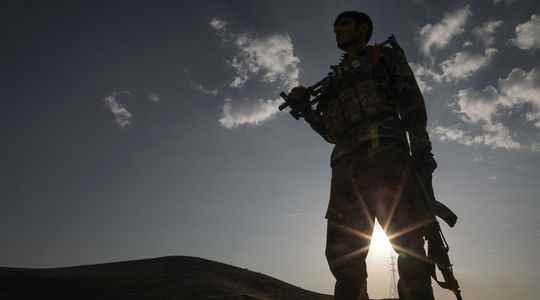A people caught between two fires. In the West, the Turkish bombs. To the east, Iranian kamikaze missiles and drones. In recent weeks, the Kurds have had to face attacks from all sides. “This is an unprecedented situation, with simultaneous attacks from the two great powers of the Middle Eastern system, Turkey and Iran,” said Adel Bakawan, director of the French Center for Research on Iraq. Tehran’s military offensives against Iraqi Kurdistan have been going on for several months already, but have redoubled in intensity in recent days. Above all, they worry about their synchronization with the movements of Turkey.
Six months before the presidential election, Erdogan ready for anything
Since November 20, the Turkish army has been carrying out air raids against Kurdish-held areas in northern Syria. Officially, the power of Recep Tayyip Erdogan assures revenge for the attack of November 13 which killed six people in Istanbul, and for which Ankara very quickly accused the Kurdish terrorist organization of the PKK. “The pretext for the attack is absolutely fallacious, judge Hamit Bozarslan, director of studies at EHESS and author of Anti-Democracy in the 21st Century: Iran, Russia, Turkey (CNRS Editions). Turkey has turned into a paramilitary power, largely dominated by the radical right-wing extremist which does not hide its ambitions to achieve Turkish domination in the region. For this, she wants to eradicate the existence of an organized Kurdish force in Syria.”
From now on, Turkey promises a ground offensive against the Kurdish positions in Syria, sowing a wind of panic in the region: Washington, which has soldiers on site to fight against Daesh, and Moscow, still present in Syria, have called on Ankara to “de-escalation” and “restraint”. But Erdogan, who has become indispensable in the conflict in Ukraine and for NATO, could give in to his feeling of omnipotence. Six months before a delicate presidential election, all eyes are on him. “The Americans could act against Ankara and, for example, adopt sanctions, Russia too, points out Hamit Bozarslan. But on the one hand there is great cynicism on the part of Russia, and on the other side a great cowardice on the part of democracies. We are on the razor’s edge.”
The Iranian regime in search of an external enemy
Especially since the situation of the Kurds also appears perilous in the East. In recent days, the Iranian regime has increased drone and missile attacks against the Kurdistan region of Iraq, where Iranian refugee camps are located. From the outset of protests against the regime, following the death of Mahsa Amini on September 16, Iran launched military attacks across the border. “The regime has failed to impose the narrative of the internal enemy to explain these demonstrations, so it must find an enemy outside, explains Adel Bakawan. The first option is Israel, but if you strike a nuclear-armed country is the end of the Islamic Republic of Iran. The second option is Saudi Arabia, but attacking this country would provoke a military reaction from the Arab League, the “European Union and the United States. Last option: the regional government of Kurdistan, which is part of an Iraqi state in a situation of military, economic, social and territorial bankruptcy. There, you can type…”
Iranian missiles and kamikaze drones hit camps mainly housing Kurds from Iran, refugees on the other side of the border. The Tehran regime accuses them of preparing an armed struggle against Iran, which Iraqi Kurdistan firmly denies. “This is a pretext, the problem of Iran is not with us and does not concern us, assures us Ali Dolamari, representative of the Kurdistan regional government in France. These attacks launched by the Iranians are really unacceptable since they take place in Iraq, a sovereign country. We condemn them and hope to find a solution of negotiations with the Iranians.”
In an area the size of France, straddling Turkey, Syria, Iraq and Iran, more than 50 million people claim to be Kurds. In 2005, this people deprived of a state obtained a first victory with the creation of the autonomous province of Iraqi Kurdistan, in the north of the country. “Today, in this part of the Middle East, we are the only stable region, where everyone can live together, pleads Ali Dolamari. We still welcome about 1 million refugees and displaced people. If the attacks of the Iran against our territory are repeated, they risk destabilizing the region.”
Moreover, the Iranian regime’s offensive is not limited to Iraqi Kurdistan. Towns in Iranian Kurdistan, where the uprising against the authorities is particularly important, have recently seen military regiments land and are said to be victims of bloody repression. “These Kurdish areas, much more than the rest of Iran, have experienced marginalization, frustration, non-reconstruction, lack of services or access to employment and education, lists Adel Bakawan Hence this revolt, even if this protest movement in Iran is national, and not ethnicized.” Still, the first victim of this period of uprising will remain Mahsa Amini. Or rather Jina Amini, her Kurdish name.
